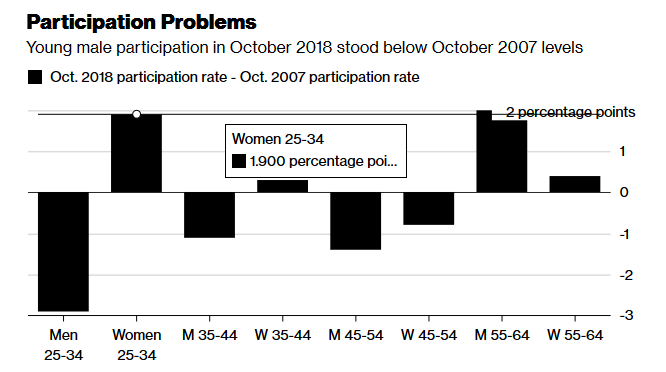The most important foundation of prosperity in America is the two-parent family. Unfortunately, the number of two-parent families has decreased in recent years.
This is a chart from the Pew Research Center posted on December 17, 2015:
 On April 10, 2014, The Washington Post reported:
On April 10, 2014, The Washington Post reported:
It’s clear in America that family structure and poverty are intertwined: Nearly a third of households headed by single women live below the poverty line. And just six percent of families led by married couples are in the official ranks of the poor. Poverty, meanwhile, touches an astounding 45 percent of children who live without a father.
Recent research by Raj Chetty, Nathaniel Hendron, Patrick Kline, Emmanuel Saez and Nicholas Turner also found that intergenerational income mobility was lower in metropolitan areas with a larger share of single mothers, a bold-faced finding that touched off a new round of public debate over what this relationship means.
But there is another troubling fact regarding the future prosperity of America. On November 2, Bloomberg reported:
Nathan Butcher is 25 and, like many men his age, he isn’t working.
Weary of long days earning minimum wage, he quit his job in a pizzeria in June. He wants new employment but won’t take a gig he’ll hate. So for now, the Pittsburgh native and father to young children is living with his mother and training to become an emergency medical technician, hoping to get on the ladder toward a better life.
Ten years after the Great Recession, 25- to 34-year-old men are lagging in the workforce more than any other age and gender demographic. About 500,000 more would be punching the clock today had their employment rate returned to pre-downturn levels. Many, like Butcher, say they’re in training. Others report disability. All are missing out on a hot labor market and crucial years on the job, ones traditionally filled with the promotions and raises that build the foundation for a career.
The article at Bloomberg includes the following chart:
 In October 2015, TIME magazine reported:
In October 2015, TIME magazine reported:
For the first time since the Census Bureau began collecting data on higher education attainment, women are more likely to have a bachelor’s degree than men.
Last year, 29.9% of men had a bachelor’s degree, while 30.2% of women did, the bureau reports. A decade prior, in 2005, 28.5% of men had bachelor’s degree, while only 26% of women did.
Young women are driving the change. In the 25-34 age group, 37.5% of women have a bachelor’s degree or higher, while only 29.5% of men do. (Rates of college attainment for men and women in this age group are increasing roughly equally.) But for the over-65 crowd, only 20.3% of women have such degrees, compared to 30.6% of men.
Historically men have been the main providers for their families. Young men have been encouraged to get a good job, get married, and have a family. These ideals have been undermined in recent years by the cultural war against traditional families, traditional roles of men and women, and family values. What has been overlooked by the people fighting traditional values is the role traditional values play in the prosperity of America. The report by Bloomberg is a further indication of the overall decline of our society and the future decline in prosperity.
